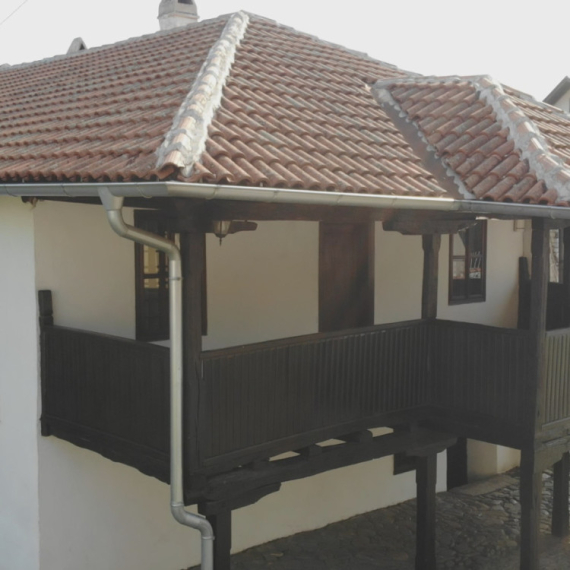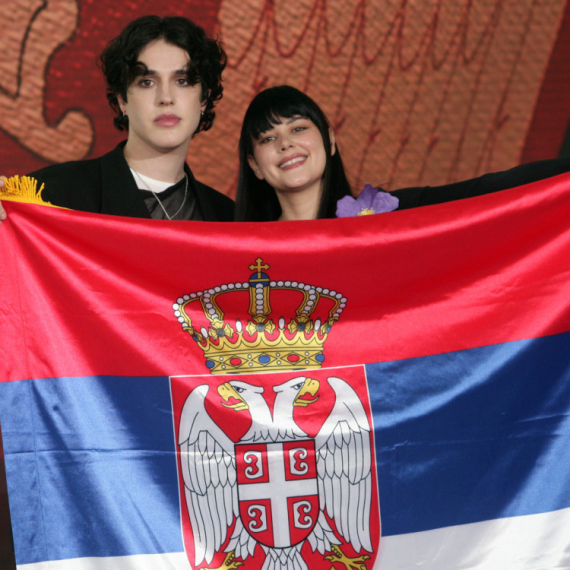EULEX consulted on “strategy for north”
The EU mission in Kosovo, EULEX, has confirmed they were consulted during the making of a <a href="http://www.b92.net/eng/news/politics-article.php?yyyy=2010&mm=01&dd=15&nav_id=64491" class="text-link" target= "_blank">plan to integrate</a> northern Kosovo, an Albanian language daily writes.
Friday, 22.01.2010.
13:40

The EU mission in Kosovo, EULEX, has confirmed they were consulted during the making of a plan to integrate northern Kosovo, an Albanian language daily writes. “This is not an EU strategy, although we have been consulted during its making, just as other partners have been,” Koha Ditore quoted spokeswoman Karin Limdal. EULEX consulted on “strategy for north” But she would not comment on the recommendations in the document related to EULEX. Limdal told the newspaper that EULEX “has a mandate to support Kosovo’s institutions in building a functional system of the rule of law on the entire territory, including northern Kosovo”. The basis of the draft – recently announced by the Kosovo Albanian government in Pristina and the International Civilian Office (ICO) – relates to EULEX’s obligations, the daily said. “The strategy requires nothing more than the implementation of the rule of law, which is in EULEX’s jurisdiction,” Kosovo Deputy PM Hajredin Kuqi was quoted as saying. In Belgrade earlier this week, Foreign Minister Vuk Jeremic referred to ICO as “illegal”, while President Boris Tadic, who will address the UN Security Council later today, said that one of the issues he will talk about will be the announced strategy. Details emerge in media The decentralization of Kosovo, that is, the formation of the independent municipality of “northern Mitrovica” is the key step in Pristina's efforts to establish its authority over the northern part of the province, says Serbian-language monthly Glas Juga, Tanjug reported quoting the BBC. Noting that the EU mission in Kosovo confirmed the text published in the Gracanica-based magazine as authentic, the BBC said that the strategy for the north also calls for increased Kosovo police presence there, as well as establishment of courts and a “complete takeover” of the two administrative border crossings with central Serbia. The strategy, which is being prepared by the International Civilian Office and the interim government in Pristina, Tanjug writes, suggests that the biggest problem – the perception that founding a new municipality of northern Kosovska Mitrovica represents a recognition of Kosovo's independence – would be overcome “by convincing the local Serb population that the decentralization would bring them practical benefits”. The authors of the document believe that, after the municipality of “northern Mitrovica” has been successfully formed and integrated into the Kosovo system, a similar mechanism could be applied to the integration of Zvecan, Leposavic and Zubin Potok – all with a majority Serb population. BBC’s reporter in northern Kosovska Mitrovica Tanja Vujisic believes, however, that “chances are slim that the strategy can be implemented in a smooth and peaceful manner”. Reminding of the “vehement” reaction from the Serbs in the north when UNMIK police tried to take over the court building in the northern part of the town in March 2008, the BBC said, according to Tanjug, that an attempt by Pristina to establish control over certain institutions would trigger an even greater revolt among the Serbs.
EULEX consulted on “strategy for north”
But she would not comment on the recommendations in the document related to EULEX.Limdal told the newspaper that EULEX “has a mandate to support Kosovo’s institutions in building a functional system of the rule of law on the entire territory, including northern Kosovo”.
The basis of the draft – recently announced by the Kosovo Albanian government in Priština and the International Civilian Office (ICO) – relates to EULEX’s obligations, the daily said.
“The strategy requires nothing more than the implementation of the rule of law, which is in EULEX’s jurisdiction,” Kosovo Deputy PM Hajredin Kuqi was quoted as saying.
In Belgrade earlier this week, Foreign Minister Vuk Jeremić referred to ICO as “illegal”, while President Boris Tadić, who will address the UN Security Council later today, said that one of the issues he will talk about will be the announced strategy.
Details emerge in media
The decentralization of Kosovo, that is, the formation of the independent municipality of “northern Mitrovica” is the key step in Priština's efforts to establish its authority over the northern part of the province, says Serbian-language monthly Glas Juga, Tanjug reported quoting the BBC.Noting that the EU mission in Kosovo confirmed the text published in the Gračanica-based magazine as authentic, the BBC said that the strategy for the north also calls for increased Kosovo police presence there, as well as establishment of courts and a “complete takeover” of the two administrative border crossings with central Serbia.
The strategy, which is being prepared by the International Civilian Office and the interim government in Priština, Tanjug writes, suggests that the biggest problem – the perception that founding a new municipality of northern Kosovska Mitrovica represents a recognition of Kosovo's independence – would be overcome “by convincing the local Serb population that the decentralization would bring them practical benefits”.
The authors of the document believe that, after the municipality of “northern Mitrovica” has been successfully formed and integrated into the Kosovo system, a similar mechanism could be applied to the integration of Zvečan, Leposavić and Zubin Potok – all with a majority Serb population.
BBC’s reporter in northern Kosovska Mitrovica Tanja Vujisić believes, however, that “chances are slim that the strategy can be implemented in a smooth and peaceful manner”.
Reminding of the “vehement” reaction from the Serbs in the north when UNMIK police tried to take over the court building in the northern part of the town in March 2008, the BBC said, according to Tanjug, that an attempt by Priština to establish control over certain institutions would trigger an even greater revolt among the Serbs.


























































Komentari 25
Pogledaj komentare